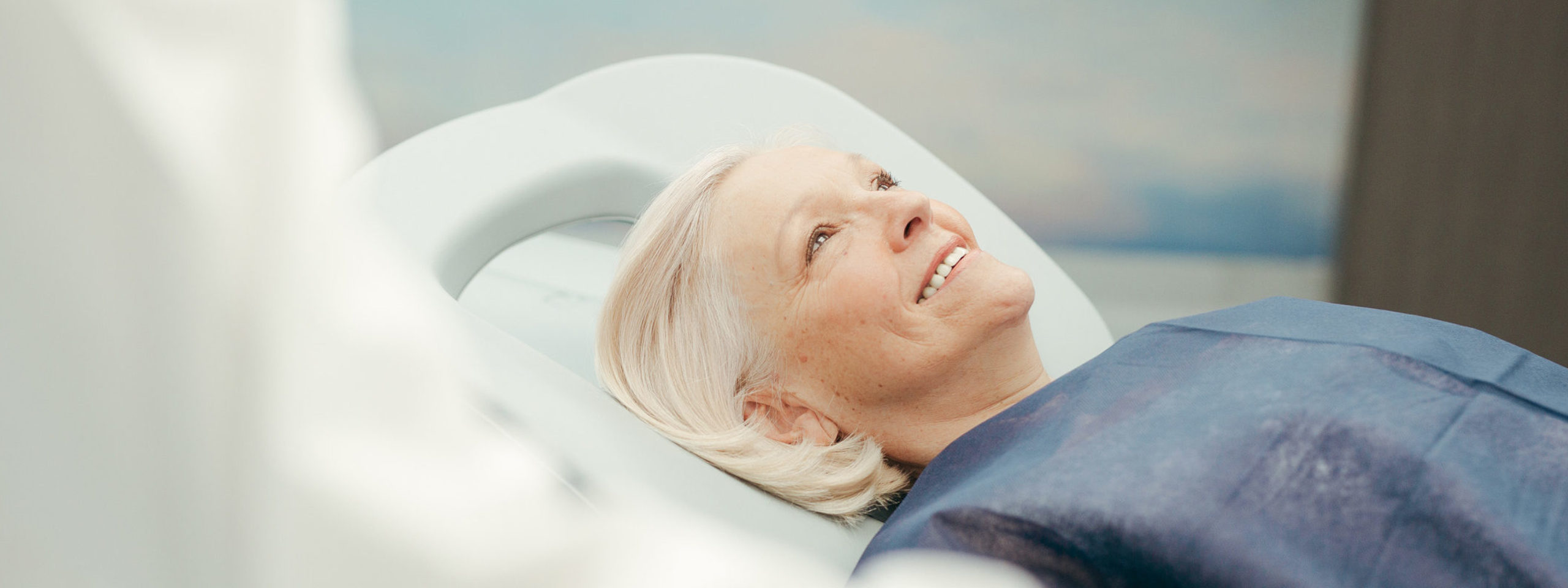A bone density, or dual-energy x-ray absorptiometry scan (DEXA) scan is a type of x-ray that measures bone mineral density (BMD).
The scan gives information about bone strength or fragility. It does this by measuring your bone mineral content and comparing it to people of the same age and sex as you. The amount of bone density loss provides information about your risk of having a fracture; for example, a higher bone density typically indicates a lower risk of fracture. Monitoring your bone density loss helps your doctor plan preventative therapy or medical treatment.
The most common reason for having a bone density scan is to detect osteoporosis, a condition which results from loss of bone mineral to a level which increases the risk of fractures.
The spine and one or both hips are routinely scanned. The forearm might also be scanned if either the hip or spine is unavailable (usually due to surgery). As any condition affecting bone density tends to affect the whole skeleton, a snapshot of a few sites is sufficient to establish the overall bone density. The BMD at the hip and spine has been shown to be the best way of predicting the risk of fracture. On some occasions, scans of the forearm may also be obtained.
Procedure
It is a simple, pain-free scan. Your height and weight are measured to allow the computer to generate information about your bone density. You need to lie on a table supported by a cushion while you are scanned.
Duration
The scan varies between individual scanning machines, and can take from 10 minutes to 30 minutes.
Preparation and Precautions
Before the bone density scan, you may be asked to change into an examination gown for your safety and to ensure clothing does not affect the images and the diagnostic quality of the scan. You may also be asked to remove jewellery and any metal objects that might interfere with the images.
You must tell the staff if you have any metallic implants in your spine, artificial hips, or metallic screws or pins in your bones.
Do not schedule your scan within one week of having a Barium Meal or Enema, an intravenous pyelogram (IVP), a nuclear medicine study or a CT scan, as these tests may interfere with the accuracy of the results.
You must tell staff if you have recently had a barium meal or enema, an IVP, a nuclear medicine study or a CT scan, as these tests may interfere with the accuracy of the bone density scan results. You may need to wait 10 to 14 days before having your bone density scan.
As the scan involves a small dose of radiation, it is unsuitable for women that are, or may, be pregnant. It is important to advise staff if there is any chance you may be pregnant or breastfeeding prior to booking your appointment.
View the Patient Care page for additional information regarding patient safety.
Are you ready to make your Bone Density appointment?
Our online booking platform allows you to quickly and easily make an appointment online.



